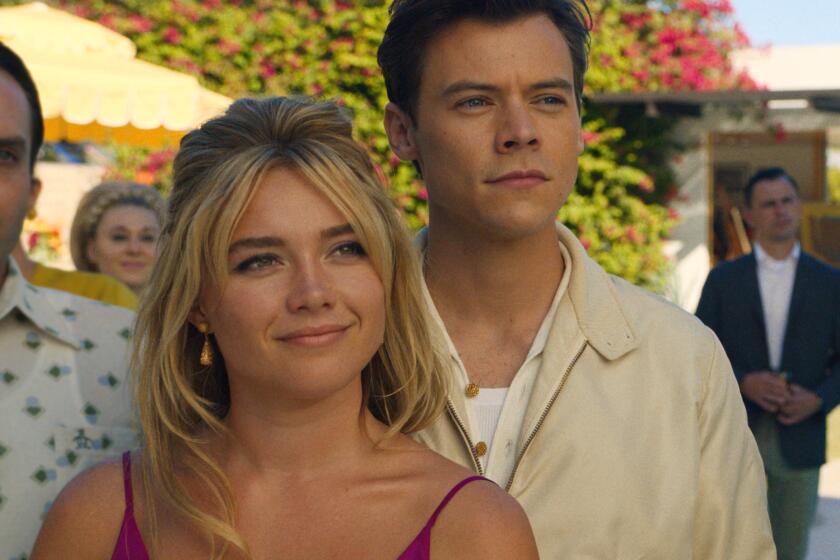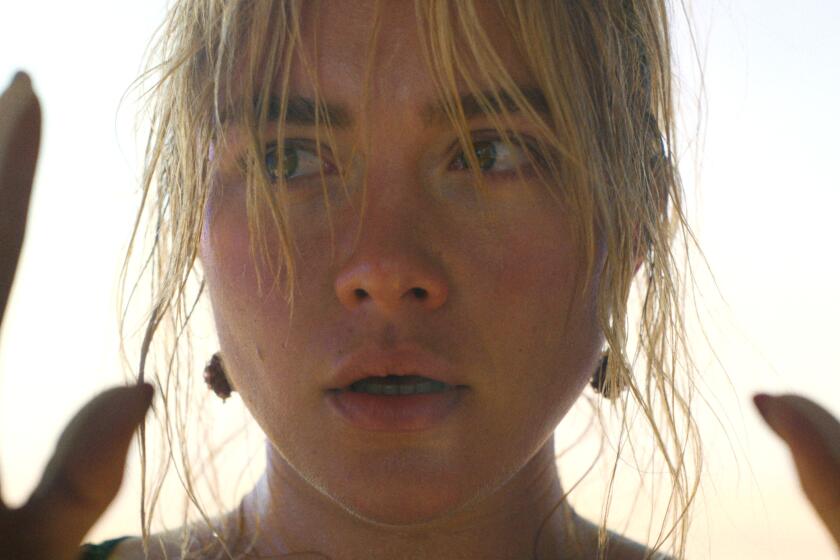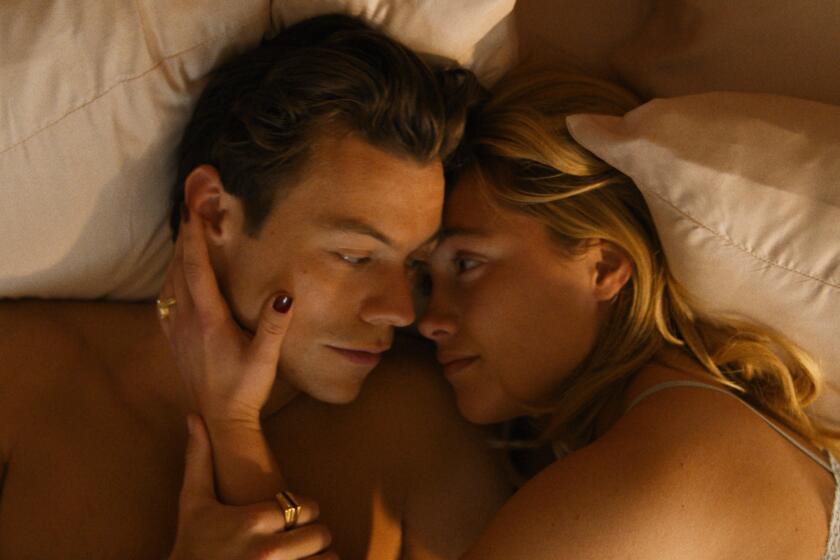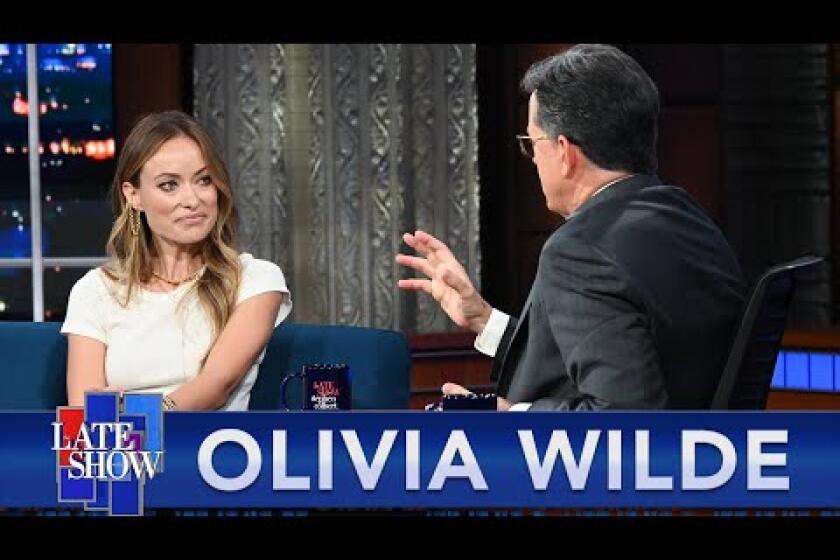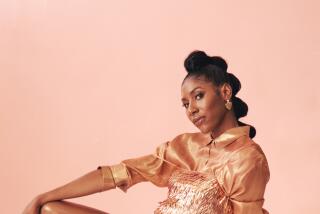No worries, ‘Darling,’ KiKi Layne is ‘thriving’ after being cut from most of film
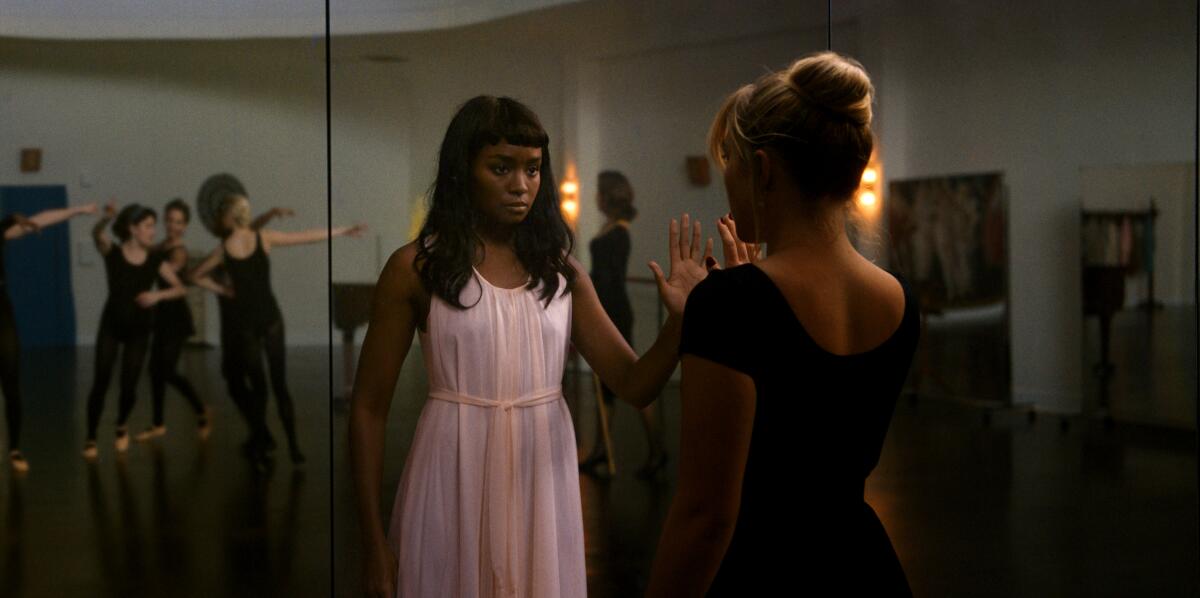
- Share via
Fans are rallying for KiKi Layne after the “Don’t Worry Darling” star said her character was largely erased from the film.
On Sunday, Layne wrote on Instagram that she and scene partner Ari’el Stachel are “thriving in real life” after “they cut us from most of the movie.” In the psychological thriller, Layne and Stachel play Margaret and Ted, a married couple living in an idyllic 1950s community that isn’t what it seems.
“The best thing about #DontWorryDarling is that I was lucky enough to meet @arielstachel,” Layne captioned a series of videos and photos from the set of the period drama. “Love you Ari ... #GotMyCheck #GotMyMan #EverythingHappensforaReason.”
Olivia Wilde’s ‘Don’t Worry Darling,’ starring Florence Pugh and Harry Styles, performed as well as anticipated at the domestic box office.
In the comments section of Layne’s post, Stachel and Gemma Chan showed their support for their “Don’t Worry Darling” co-star. Chan, who plays a ballet instructor and wife of the film’s mysterious community leader (Chris Pine), replied with a single heart emoji.
“My love,” Stachel wrote. “You are a queen and your talent shines so bright. I was thirsty then and I’m thirsty now.”
Stachel, who won a Tony in 2018 for his role in “The Band’s Visit,” also shared a TikTok video in response to those lamenting his limited presence as a “glorified extra” in the movie.
Florence Pugh and Harry Styles play a couple who find trouble in paradise in a thriller that’s nowhere near as interesting as its production history.
“When you end up on the cutting room floor,” the Tony winner captioned his post. “Go see Don’t Worry Darling.”
The Los Angeles Times has reached out to Warner Bros. Pictures and New Line Cinema for comment.
Directed by Olivia Wilde, “Don’t Worry Darling” stars Florence Pugh as a ‘50s housewife who begins to question the intentions of her doting husband (Harry Styles) and his enigmatic employer (Pine) after Layne’s character signals that something is off about their utopian neighborhood.
Early in the film (mild spoiler alert), Layne’s Margaret is ostracized for attempting to uncover the community’s dark secrets. The “Old Guard” actor is billed atop the “Don’t Worry Darling” poster with Pugh, Styles, Wilde, Chan, Pine and Nick Kroll. However, she did not attend the film’s premiere at the Venice Film Festival with the rest of the cast.
Few recent films have arrived with as much dramatic backstory as Olivia Wilde’s latest, starring Harry Styles and Florence Pugh. Here’s what to know.
Leading up to its theatrical release this weekend, “Don’t Worry Darling” has been constantly plagued by splashy headlines teasing an on-set romance between Wilde and Styles, a custody battle between Wilde and her ex (Jason Sudeikis), a debunked spitting incident involving Styles and Pine, a public disagreement between Wilde and ex-cast member Shia LaBeouf and a disputed feud between Wilde and Pugh.
“it’s all ‘florence pugh this’ ‘olivia wilde that’ ‘shia lebouf said…’ okay how about that kiki layne’s name was on the damn poster and she wasn’t even at the venice premiere?” tweeted @gnighthrry. “her character is CRUCIAL for the plot of the movie but olivia hasn’t mentioned her name once.”
“what makes this so ... awful is kiki layne’s character was so integral to the plot im so disappointed,” tweeted @_maggiemcguire_. “we rlly did not need to see [Wilde’s character] bunny smoking her cigarettes and screaming at her kids the whole movie.”
“olivia wilde could’ve removed some her scenes but she cut kiki layne’s scenes instead,” tweeted @btdrry.
A rep for Wilde did not immediately respond Monday to The Times’ request for comment.
Olivia Wilde tells Stephen Colbert there’s nothing to see here, and if you do see something odd with ‘Don’t Worry Darling,’ it’s because she’s a woman.
In her review of “Don’t Worry Darling” for the Huffington Post, senior culture reporter Candice Frederick questioned Layne’s reduced role in the movie, which “does very little with her,” and mourned the story’s squandered “potential to really subvert past iterations of this premise.”
“It becomes abundantly clear that despite the film’s capacity to add nuance to the white-woman-in-plight narrative, Margaret is only here as a plot device,” Frederick writes.
“Just think about what could have been if both Alice and Margaret collaborated to flip this strange system in which they dwell. Maybe the filmmakers were too preoccupied with trying to concoct the most inane twist in the third act to quibble over its heavily white feminist vibes.”
More to Read
The biggest entertainment stories
Get our big stories about Hollywood, film, television, music, arts, culture and more right in your inbox as soon as they publish.
You may occasionally receive promotional content from the Los Angeles Times.
